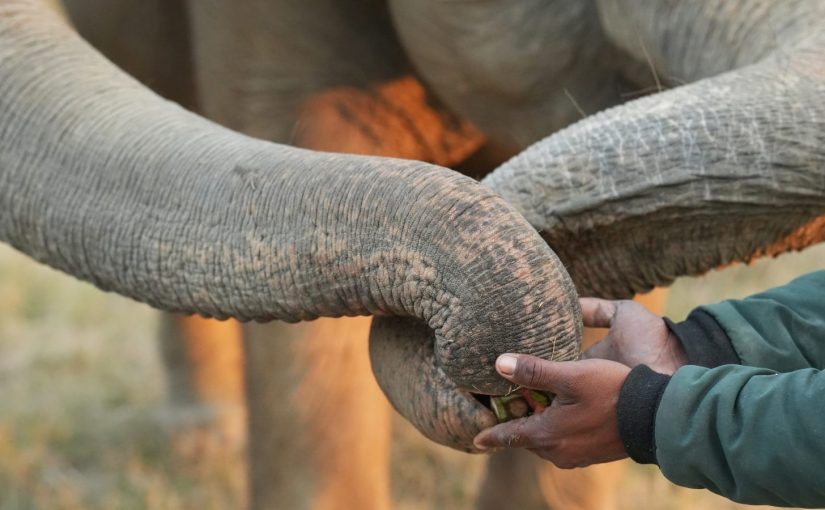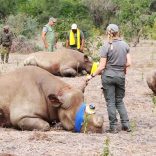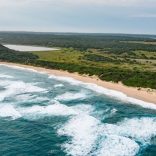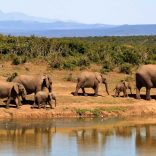Mozambique: Zinave National Park receives 10 black rhinos
Mozambique: Poaching “virtually under control”

FILE - For illustration purposes only. [File photo: Wildlife SOS]
The general director of Mozambique’s National Administration of Conservation Areas (ANAC), Pejul Calenga, believes that poaching in the country is now virtually under control.
“10 or 15 years ago, we were losing between 1,000 and 1,500 elephants every year”, said Calenga, interviewed by Radio Mozambique on Monday. “But currently the losses are less than 100 a year”.
He added that, in some conservation areas, there had been no deaths at all of elephants at the hands of poachers for two consecutive years. This was the case, for example, with the Niassa Special Reserve, in the far north, and with the Gorongosa National Park, in the central province of Sofala.
A decade ago, said Calenga, ANAC’s major concern was to halt the operations of poaching cartels which not only threatened the survival of species, but also damaged the international image of the country.
Ivory and rhino horns from animals poached in Mozambique were seized outside the country, and it was said that the Mozambican authorities were doing little or nothing to halt poaching.
Calenga attributed the dramatic reduction in the number of elephants poached to improved inspection. “We have increased the number of rangers”, he said. There used to be one ranger per 150 square kilometres of protected area – the figure is now one ranger for less than 100 square kilometres.
ANAC had also worked with the judiciary, to ensure that, when poachers area caught, they face stiff penalties. “With the approval of the conservation law in 2014, it was possible to win the commitment of the judiciary, of the prosecutors and of the courts”, he said. The bodies responsible for enforcing the law had become more sensitive to wildlife crime.
The concern was not only with poaching, but also with the illegal trade in wildlife products. “We put police dog units at the airports”, said Calenga. “We worked with the customs service to close the entry and exit points to the poachers and the cartels”.
“We have a system that allows us to watch the movement of the rangers”, he said. Coordination with other forces remains a priority, as does work with the local communities.
“The poachers come from the communities”, he added. “Working with them brings more benefits and it becomes possible to staunch the problem”.












Leave a Reply
Be the First to Comment!
You must be logged in to post a comment.
You must be logged in to post a comment.